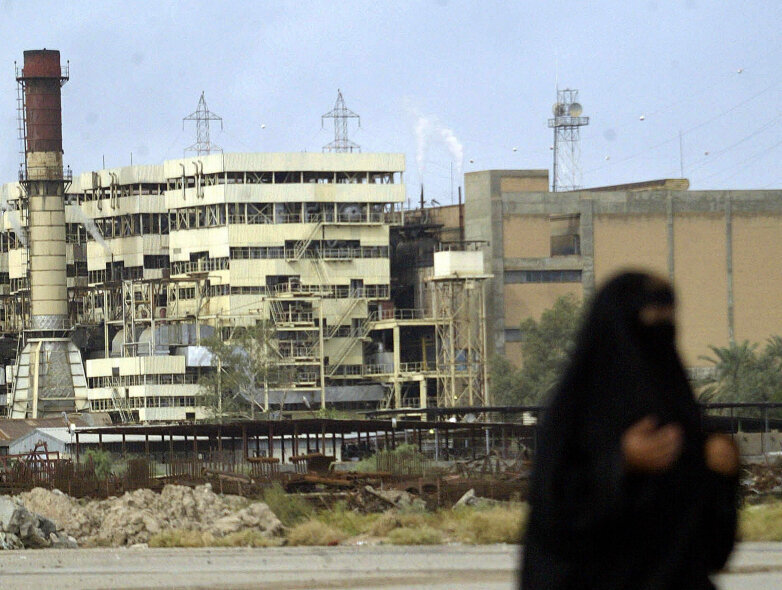Iran capable of boosting electricity exports to Iraq

TEHRAN - Managing director of Iran’s Kordestan Province’s Power Distribution Company said on Saturday that the company has the capacity to export 300 megawatts of electricity to Sulaymaniyah province in Iraqi Kurdistan, IRNA reported.
“We are currently ready to export 300 MW of electricity to Sulaimaniyah in the Iraqi Kurdistan Region and the number can be increased to 900 MW in the long term,” Hiva Lahounian told IRNA.
The official noted that the 300MW target is easily possible with low costs, however, the transaction requires approval and coordination of officials from the two provinces of Iran and Iraq.
He further mentioned Sulaymaniyah’s previous electricity dues to Iran, saying that it is no longer possible for the province to import Iranian electricity.
He called on the government and the energy ministry to take necessary measures in order to solve such problems and help realize this potential power trade opportunity.
In this regard, Head of Sulaimaniyah Province’s Power Distribution Company Salar Hessamodin also said Iraq’s central government is in complete accordance with the Iraqi Kurdistan region for electricity imports from Iran.
“This is a subject which should be followed on by Iran’s energy ministry and Iraq’s electricity ministry along with the Kurdistan region’s power distribution company,” he said.
Electricity exports to Iraq
Being neighbor to a country which is the home to the world’s second largest gas resources is a good-enough reason for Iraq to look to Iran as one of its main suppliers of natural gas to meet its energy needs. Therefore, Iran for long has been one of Iraq’s main gas suppliers.
In February, Iran signed an agreement with Iraq to extend exports of 1,200 megawatts of electricity to the Arab country every year through three power transmission lines.
The deal was inked by Managing Director of Iran’s Power Generation, Transmission and Distribution Management Company (Tavanir) and the Iraqi deputy electricity minister in Tehran.
Iran's Energy Minister Reza Ardakanian and Iraqi Minister of Electricity Luay al-Khatib also signed initial accords to boost cooperation in the fields of power production and exports as well as the transfer of power industry technology.
The two country had initially signed a contract for electricity exports in 2005 with the total exports amount at 150-megawatt. The contract has been extended every year since.
Under the latest contract between the two countries, Iran exports 1,200 megawatts of electricity to Iraq every year through three power transmission lines in Basrah, Diyala and Amarah.
Iran’s power exchanges
Iran currently exchanges electricity with its neighbors namely Armenia, Azerbaijan, Turkey, Pakistan, Afghanistan, Turkmenistan, Iraq, as well as the Nakhchivan Autonomous Republic among which Iraq, Turkey, Pakistan and Afghanistan are only importers of Iran’s electricity.
According to reports, it is predicted that Iran’s export of electricity would hit $33 billion by the Iranian calendar year of 1404 (March 21, 2025- March 20, 2026).
In October 2018, Iranian Energy Minister Reza Ardakanian announced that the country’s daily electricity exports to the neighboring countries has reached 2,000 megawatts (MW).
The country’s exports of electricity to its neighbors increased by 25 percent in the last Iranian calendar year (ended on March 20) compared to its preceding year.
Impact of U.S. sanctions
Eelier this week, AFP reported that Iraq is establishing a trade mechanism to continue buying gas and electricity from Iran despite U.S. sanctions.
As reported, the mechanism was the result of months of talks between Iraqi, Iranian and U.S. officials.
Since Trump withdrew from Iran’s nuclear deal in last November, the U.S. government and its allies have been putting all their efforts together to isolate Iran and make the Islamic country bend under economic pressure and doing so, cutting Iran’s energy exports has been Trump’s top agenda.
Defying U.S. pressures for cutting energy ties with Iran, in early May, Iraqi electricity minister said there is no alternative for Iran’s electricity in terms of volume, price or speed of delivery.
“This is something [the electricity coming from Iran] that in terms of price and volume and delivery there is no alternative for. We have explored other options in neighboring countries. There is no alternative that competes on volume or price or speed of delivery to make up for that,” Luay al-Khatteeb told Foreign Policy.
Considering Iraq’s geopolitical improvements in the past few years, the Iraqi government has been seeking to improve the country’s infrastructure and one of the main areas of focus has been Iraq’s electricity network and power infrastructures.
EF/MA
Leave a Comment